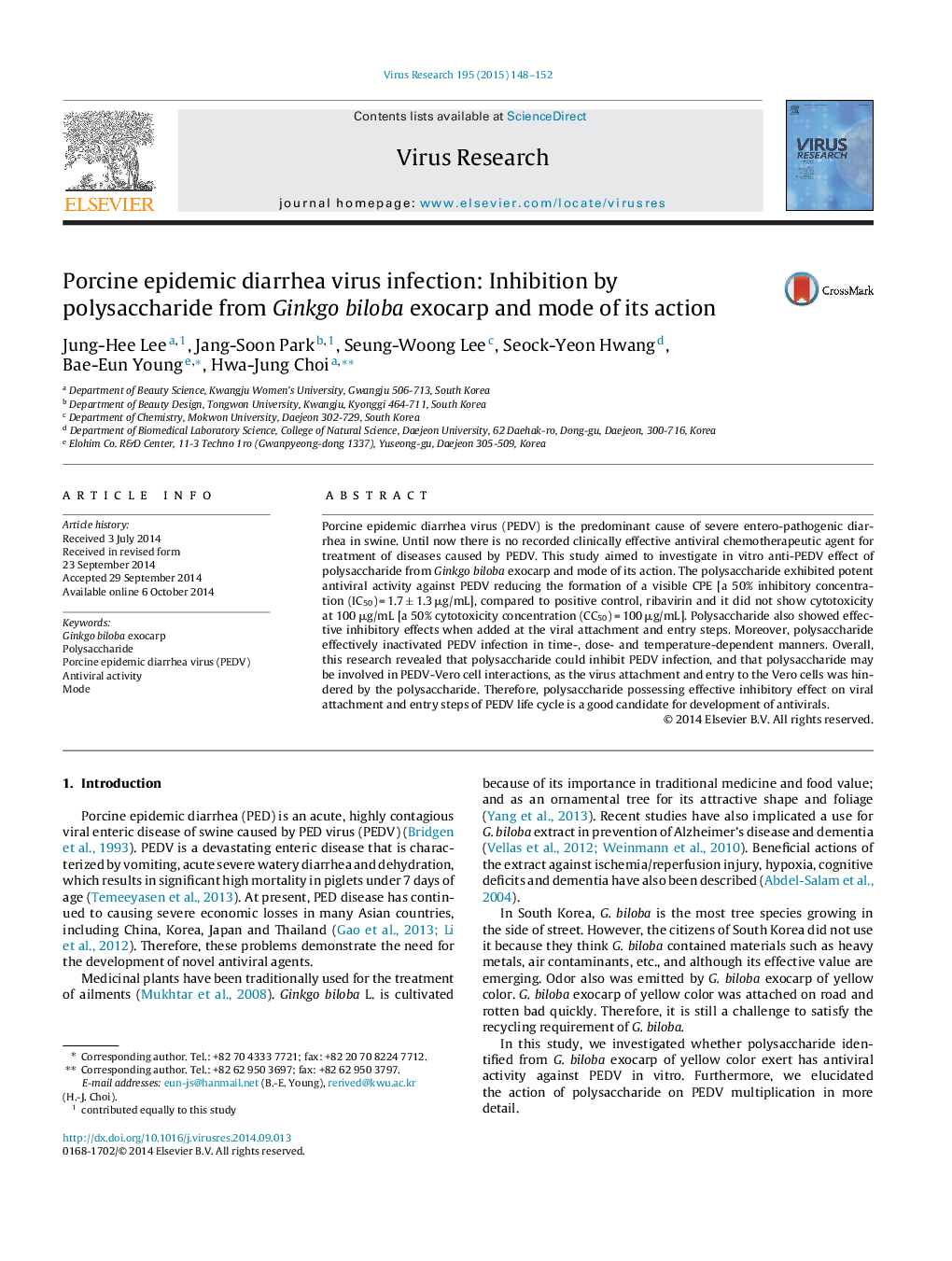| Article ID | Journal | Published Year | Pages | File Type |
|---|---|---|---|---|
| 3428358 | Virus Research | 2015 | 5 Pages |
•We investigated the in vitro anti-PEDV effect of polysaccharide from Ginkgo biloba exocarp and mode of its action.•Polysaccharide exhibited potent anti-PEDV activity.•Polysaccharide showed effective inhibitory effect on viral attachment and entry steps of PEDV life cycle.•The findings revealed a potential application for the polysaccharide to inhibit PEDV attachment and entry.
Porcine epidemic diarrhea virus (PEDV) is the predominant cause of severe entero-pathogenic diarrhea in swine. Until now there is no recorded clinically effective antiviral chemotherapeutic agent for treatment of diseases caused by PEDV. This study aimed to investigate in vitro anti-PEDV effect of polysaccharide from Ginkgo biloba exocarp and mode of its action. The polysaccharide exhibited potent antiviral activity against PEDV reducing the formation of a visible CPE [a 50% inhibitory concentration (IC50) = 1.7 ± 1.3 μg/mL], compared to positive control, ribavirin and it did not show cytotoxicity at 100 μg/mL [a 50% cytotoxicity concentration (CC50) = 100 μg/mL]. Polysaccharide also showed effective inhibitory effects when added at the viral attachment and entry steps. Moreover, polysaccharide effectively inactivated PEDV infection in time-, dose- and temperature-dependent manners. Overall, this research revealed that polysaccharide could inhibit PEDV infection, and that polysaccharide may be involved in PEDV-Vero cell interactions, as the virus attachment and entry to the Vero cells was hindered by the polysaccharide. Therefore, polysaccharide possessing effective inhibitory effect on viral attachment and entry steps of PEDV life cycle is a good candidate for development of antivirals.
Graphical abstractFigure optionsDownload full-size imageDownload as PowerPoint slide
